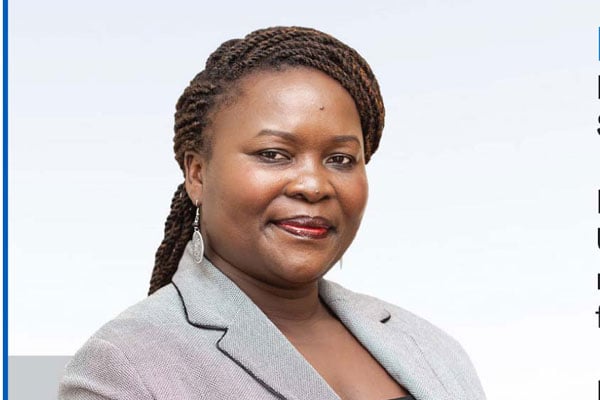We may blame Adam Smith, not Russia

Emilly C. Maractho
What you need to know:
- Well, food as you know it – the things that make Easter a celebration like chicken or meat, rice and soda, for most people. There shall be porridge for breakfast and leaves (aka vegetables) for lunch, with yams. Your mother adds that things have been difficult.
Your parents invite you for a family meeting on Holy Thursday. Your father announces, ‘there will be no Easter this year’.
Of course, there will be Easter. Christ will still die and rise as He has for over 2000 years. But in your household, Easter as you know it died with Covid-19 lockdown in 2020, when we prayed on television. But the kind of death your father is announcing is different. While new clothes died during Christmas, this year there is no food at Easter due to high prices.
Well, food as you know it – the things that make Easter a celebration like chicken or meat, rice and soda, for most people. There shall be porridge for breakfast and leaves (aka vegetables) for lunch, with yams. Your mother adds that things have been difficult.
Since government is not able to do anything about fuel and food prices, they now have to adjust and practice some good economics.
To add salt to injury, your father says that “while things really look bad, they are not too bad compared to Mr Akweto’s family next door. Imagine, with only five children they have been struggling. At least we are still able to afford some porridge and something for lunch. As a father of 10, I am trying my best and you need to appreciate that times are hard. Besides, Easter came too early, before pay day.”
So, your father has taken zero action, except to explain your situation, and that compared to others you are still better off. Any action, he says will be bad for the family. Things will eventually sort themselves in the family, not to worry. The parents do not take responsibility for all the bad decisions they made before this situation became very bad, even having 10 children. They can’t remember the gambling they did with family resources, daddy’s drinking spree and mum’s many hours spent at the neighbours doing nothing, just talking.
In many ways, there is little difference between those parents and government. Listening to some government officials explain away fuel and food price increase can be depressing.
There is the one who appears on television asking you to boycott your favourite fuel station, another on radio saying this is happening everywhere and there is nothing the government can do, even Russia is to blame. And then the one who lectures you on bad economics. They all say one thing, we are married to neoliberalism, we cannot interfere, it is market principles, market forces will sort things out, etcetera, etcetera. This is called blind faith in a system – because Adam Smith said so, so it is.
The idea that any intervention is necessarily bad or equals to price control and tax measures is perhaps our biggest challenge. Interventions are central to providing an enabling environment in any market system, and the role of government is to address market failure, when it is severe through various spending decisions and priority in budgeting – the so called fiscal and monetary instruments.
There is also the intervention that deals with a problem like capture of the economy by the so called mafias, rather than resign than any action will benefit them. The truth is, there is always intervention, the question is if we do the right ones.
Waiting for the market to sort itself while we fold our arms and read more economics literature, is unlikely to solve problems, affecting real people and ultimately weakening further, the economy. Bad economics is many things and include not planning well, not dealing with leakages decisively, not predicting and preparing citizens for bad times and so on.
Anyway, as for me and my house, we shall continue with Lent through the year and remain vegetarians. My grandfather, bless his soul, always said, there is never shortage of ‘grass’ to eat. You can have as much as possible and not harmful for those who eat ‘too much’. He must have been the earlier Dr Kasenene. How we hated that grass at every meal and now claim Dr Kasenene has a point after all. A few leaves and some roots is all we need. That is when you cook cassava leaves and boil the fresh roots for lunch.
We shall drink our black tea without sugar accompanied by sweet potatoes - no more bread and butter in our household. All meals shall be boiled, no more cooking oil budget. And of course, intermittent fasting works wonders, so strictly late breakfast and lunch – dinner is for Christmas and Easter when we skip lunch instead. And the home budget is slashed by more than half. Amazing what tough times can teach you in this world of free markets
Someone gifted me this week, a copy of 23 Things They Don’t Tell You About Capitalism by Ha-Joon Chang. It is a promising read for my Easter Monday given the times. I hope to learn tricks for me and my household, before we turn green like the grass that is our daily meal. Let me wish you a Happy Easter Monday.
Ms Maractho (PhD) is the director of Africa Policy Centre and senior lecturer at Uganda Christian University. [email protected]




